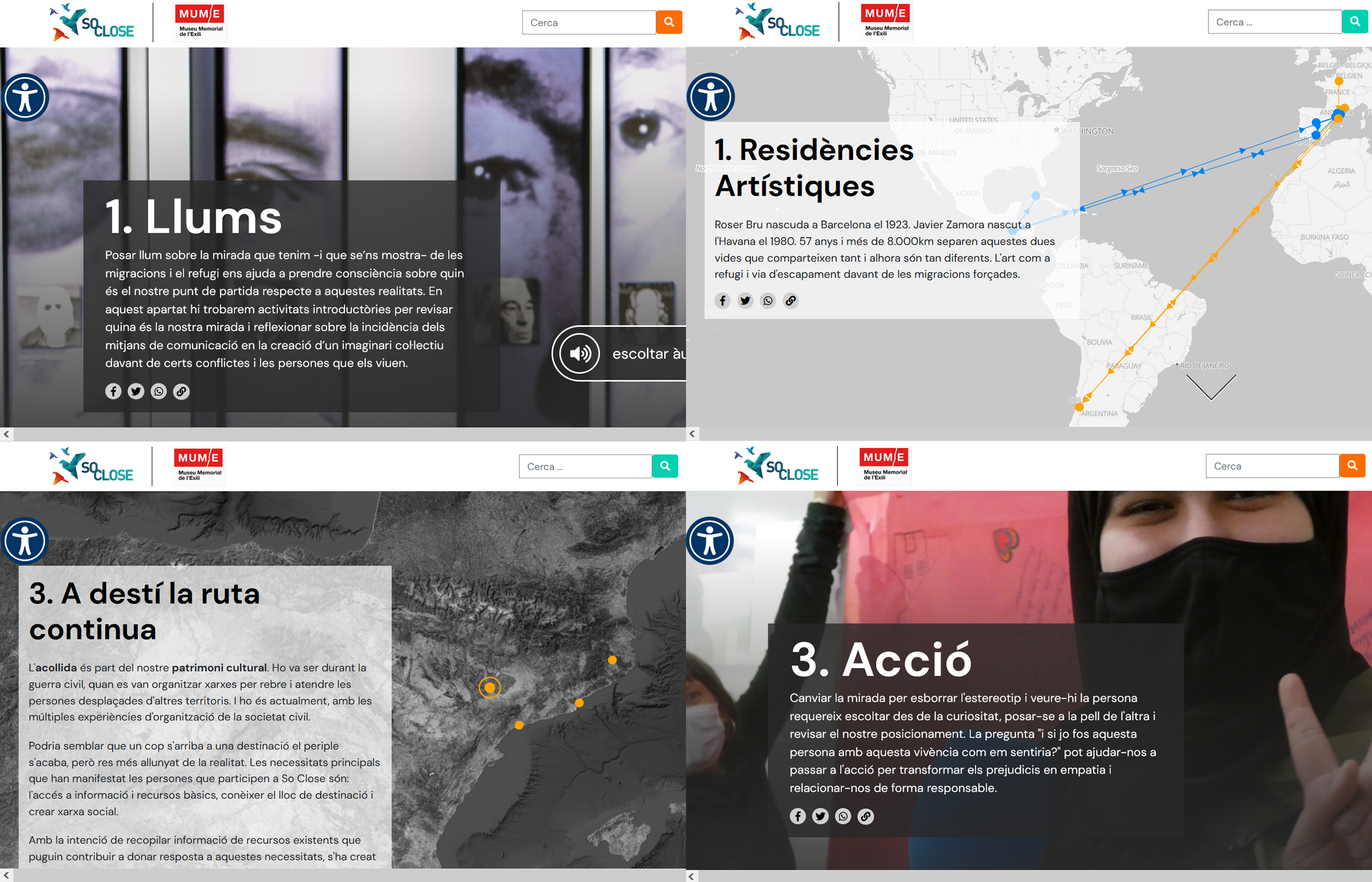The SO-CLOSE project creates digital tools to combat the exclusion of refugees
Over the course of three years, the team coordinated by the UAB has co-created open-use digital cultural content that is now available for consultation and adaptation to the project's Memory Centre Platform.

The European project SO-CLOSE, coordinated by the Autonomous University of Barcelona (UAB) and dedicated to promoting social cohesion between refugees and European host societies, was launched three years ago. With this aim, the research team has developed innovative digital and artistic tools to promote mutual understanding, through which the life experiences of refugees have been brought together with the memories of survivors of European conflicts such as the Bosnian War, the Spanish Civil War or the Holocaust, which are preserved in the centres of historical memory.
During the first phase of the project, the project worked together with refugees, cultural institutions and NGOs. Their experiences and needs were collected and educational and cultural tools were defined based on personal memories and narratives that have been collected in digital maps, virtual exhibitions and interactive documentaries.
Now, the tools generated have been made available to institutions that wish to show narratives related to migration and heritage with three different approaches: the coincidence of the past and the geographical present, the visual and immersive impact of the stories and, finally, the participation of the user.
An interactive map for navigating and learning about past and present migration histories
One of the tools developed is a "history map" in which geography is the main thread linking past and present. The map allows to explore the past and present in an interactive way, through places, migration routes and personal stories, mapped and illustrated with multimedia resources, contextual descriptions and with testimonies and narratives from different chronological moments.
Users can navigate and stop along the history map to focus on specific points of interest, sites or stories. Each place has narrative modules referring to the past or present, consisting of descriptive texts, videos, audios, images or links.
An interactive and immersive video documentary
The SO-CLOSE project has also worked on an interactive and immersive video documentary, based on visually engaging multimedia digital narratives about migratory heritage. Viewers can watch first-person interviews and testimonies through an interactive and immersive format and non-linear navigation paths.
Participatory collections and stories in a virtual exhibition
The SO-CLOSE virtual exhibition brings together a catalogue of stories and objects for an engaging experience of discovery and learning. It is a participatory and collaborative exhibition, allowing communities to share tangible and intangible elements of their origin or host country, photographs and 3D images of objects and artistic creations.
The tool allows the end user to contribute new materials, complementing the exhibition and catalogue and enriching the narratives.
Online museum space
The contents produced within the project, as well as new contents to be generated in the future, are grouped in the Memory Center Platform (MCP), a multilingual virtual space in English, Italian, Spanish, Catalan, Greek and Polish that allows the general and specialised public to display, store, search, view, share, download, aggregate and create new cultural heritage contents on refugees and migrants.
The SO-CLOSE tools have been created thanks to the participation in the project of the new technologies companies Tempesta Media and the Engineering group, the Consortium of the Exile Memorial Museum (MUME), the University of Girona, the University of Lund (Sweden), the Villa Decius Association (Poland), the Monte Sole Peace School Foundation (Italy), the Greek research and technology centre CERTH (Greece) and the Greek Refugee Forum, members of the consortium coordinated by the UAB.
- More information about the interactive map: https://so-close.eu/interactive-story-map/
- More information about the immersive web documentary: https://so-close.eu/immersive-web-documentary/
- More information about the virtual exhibitions: https://so-close.eu/participatory-virtual-exhibition/
- Access to the Memory Centre Platform: https://bit.ly/socloseMCP
- SO-CLOSE project website: https://so-close.eu